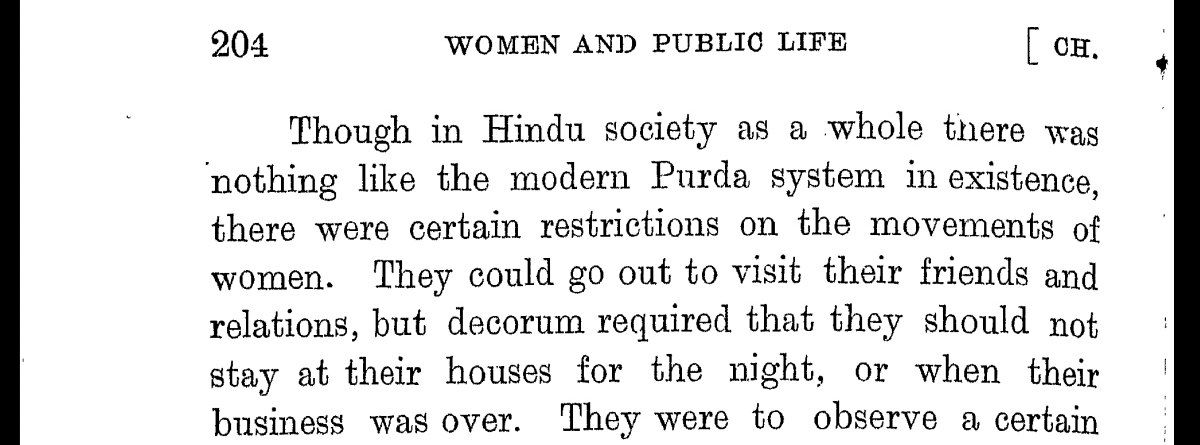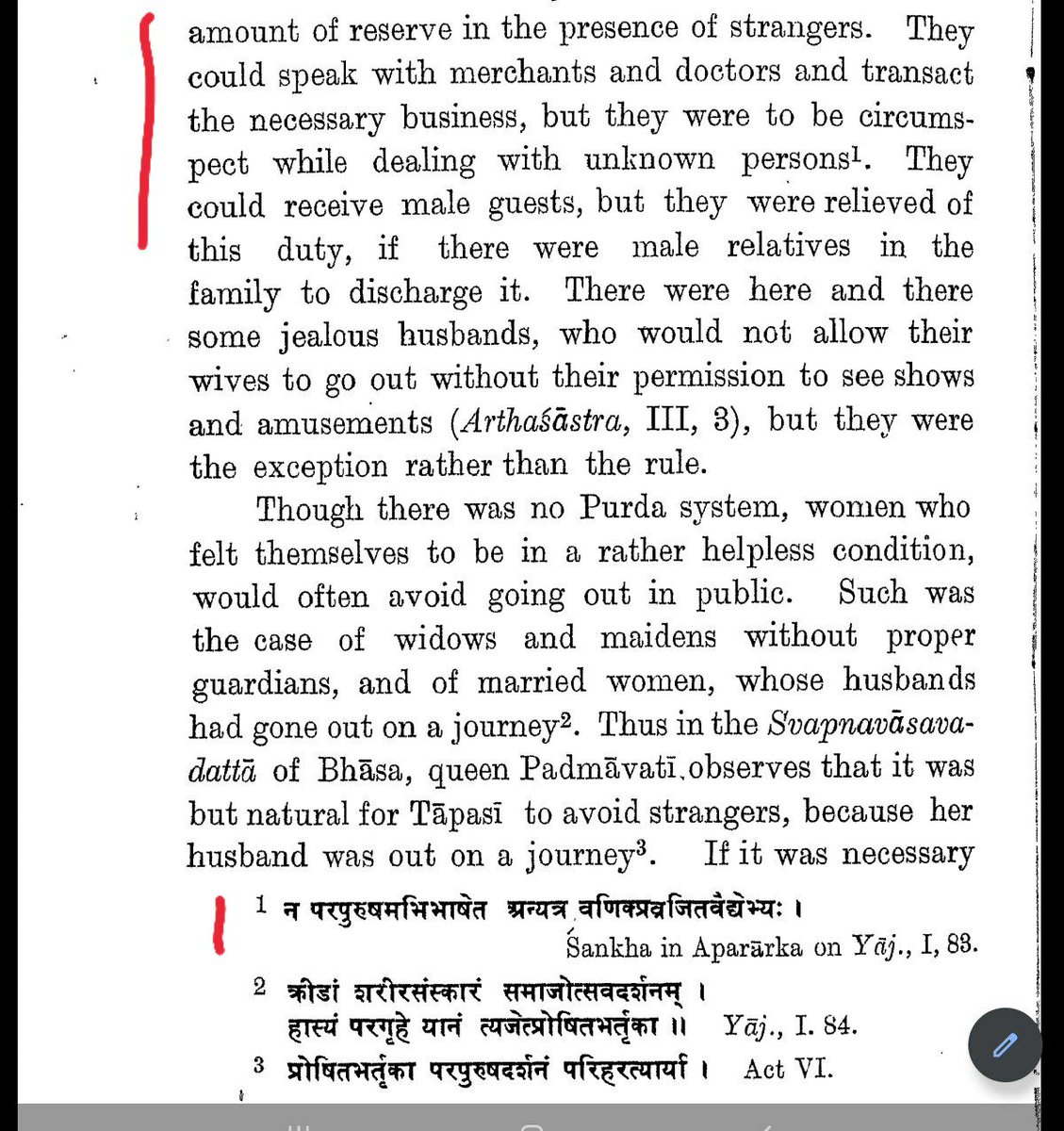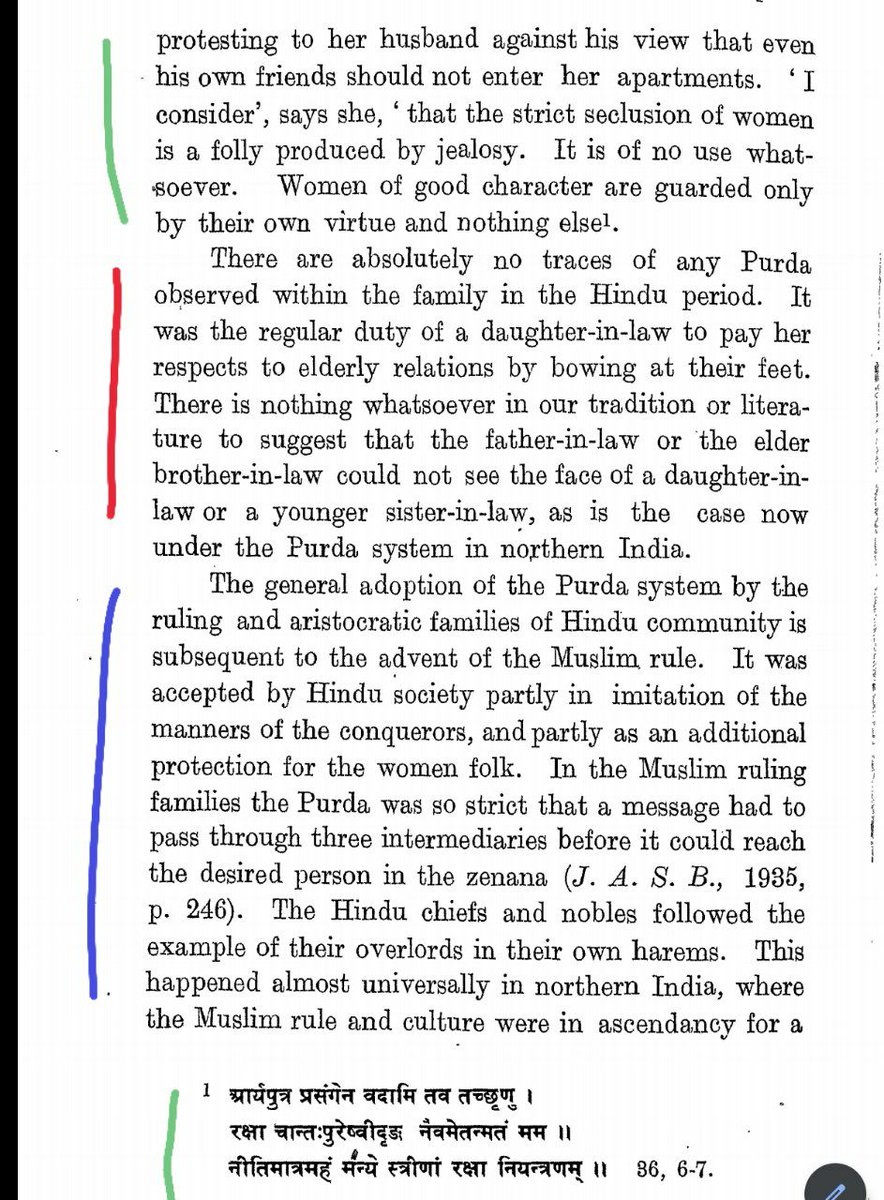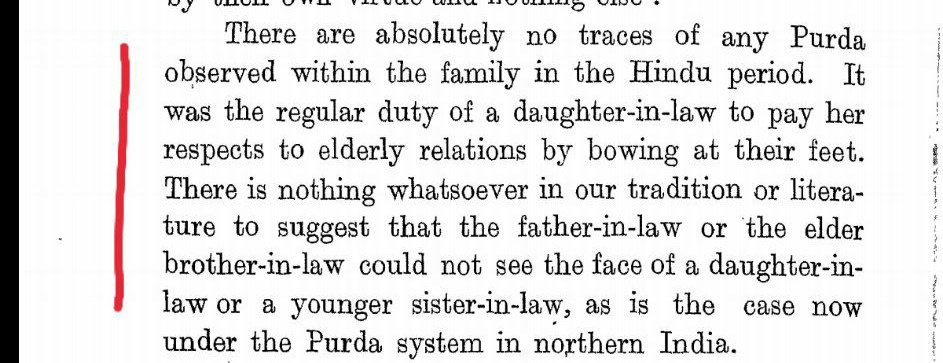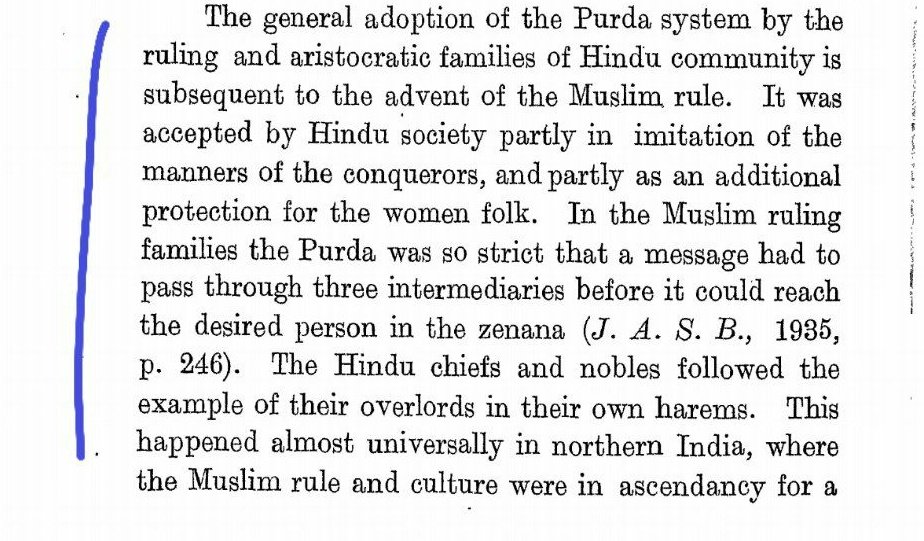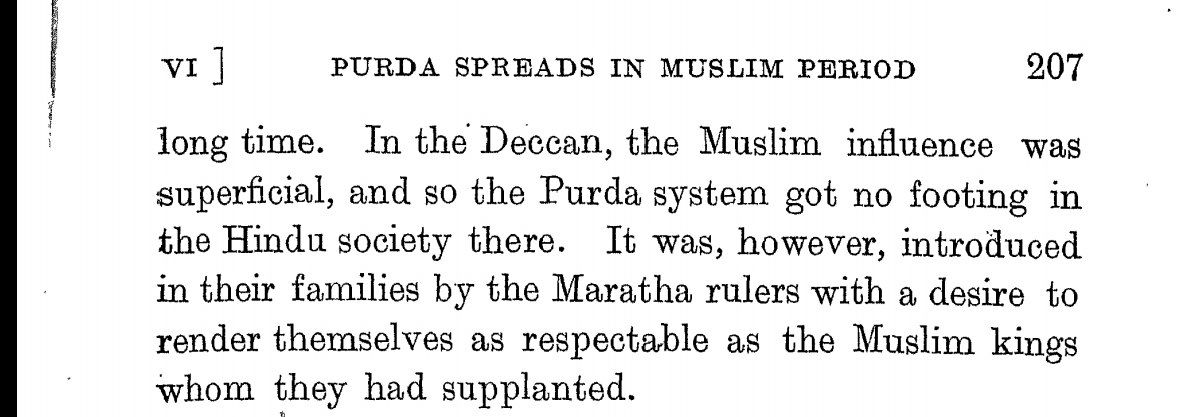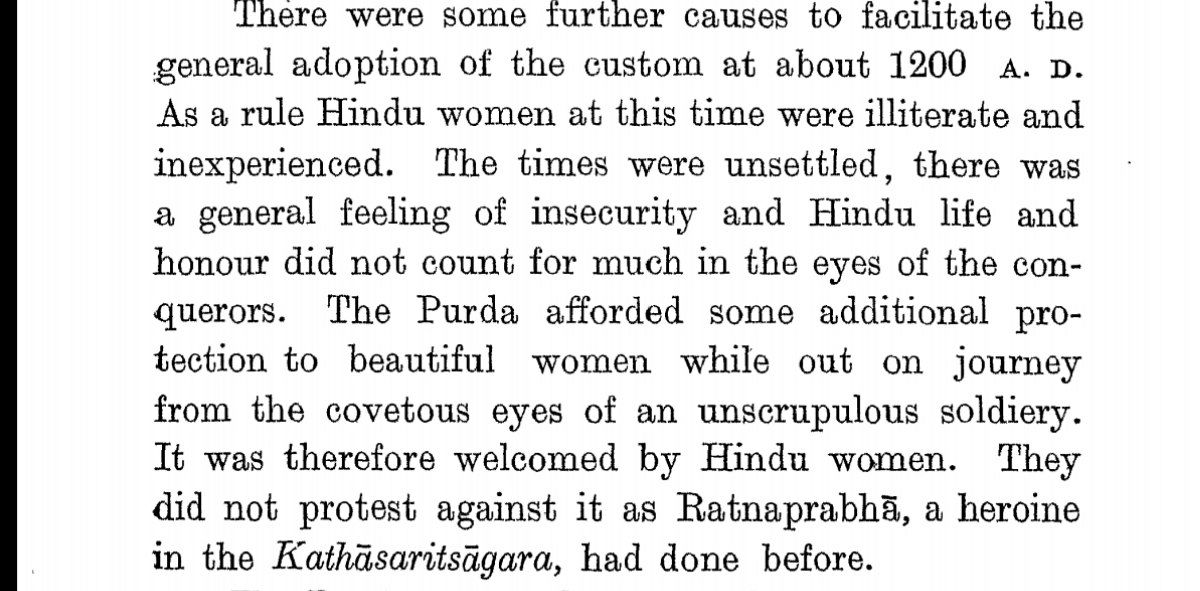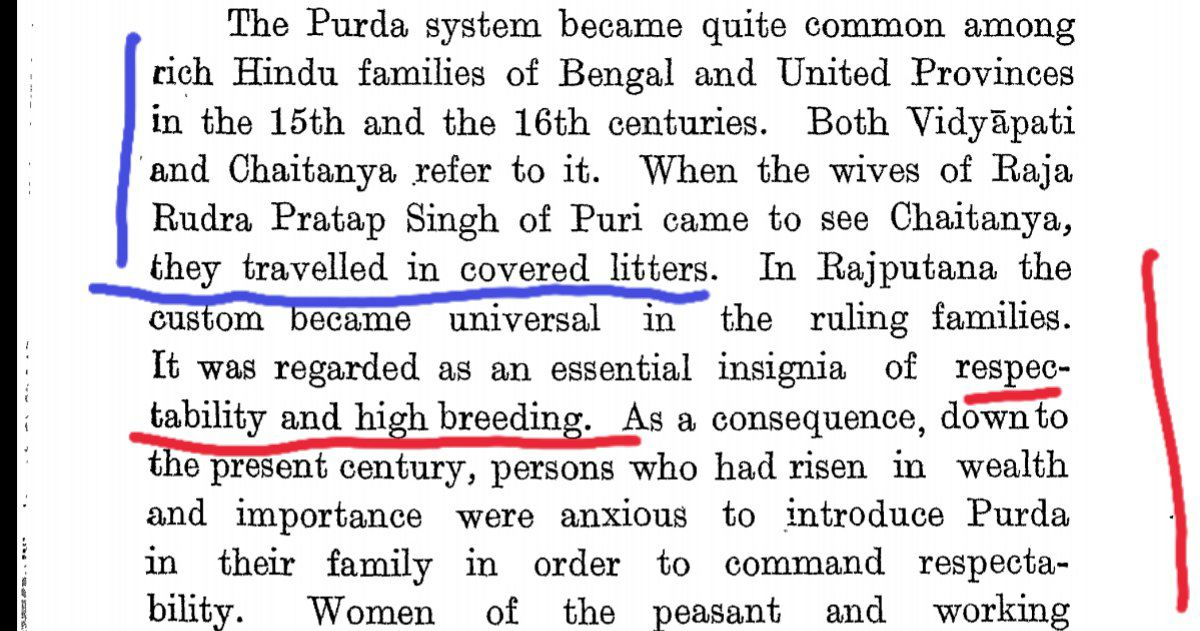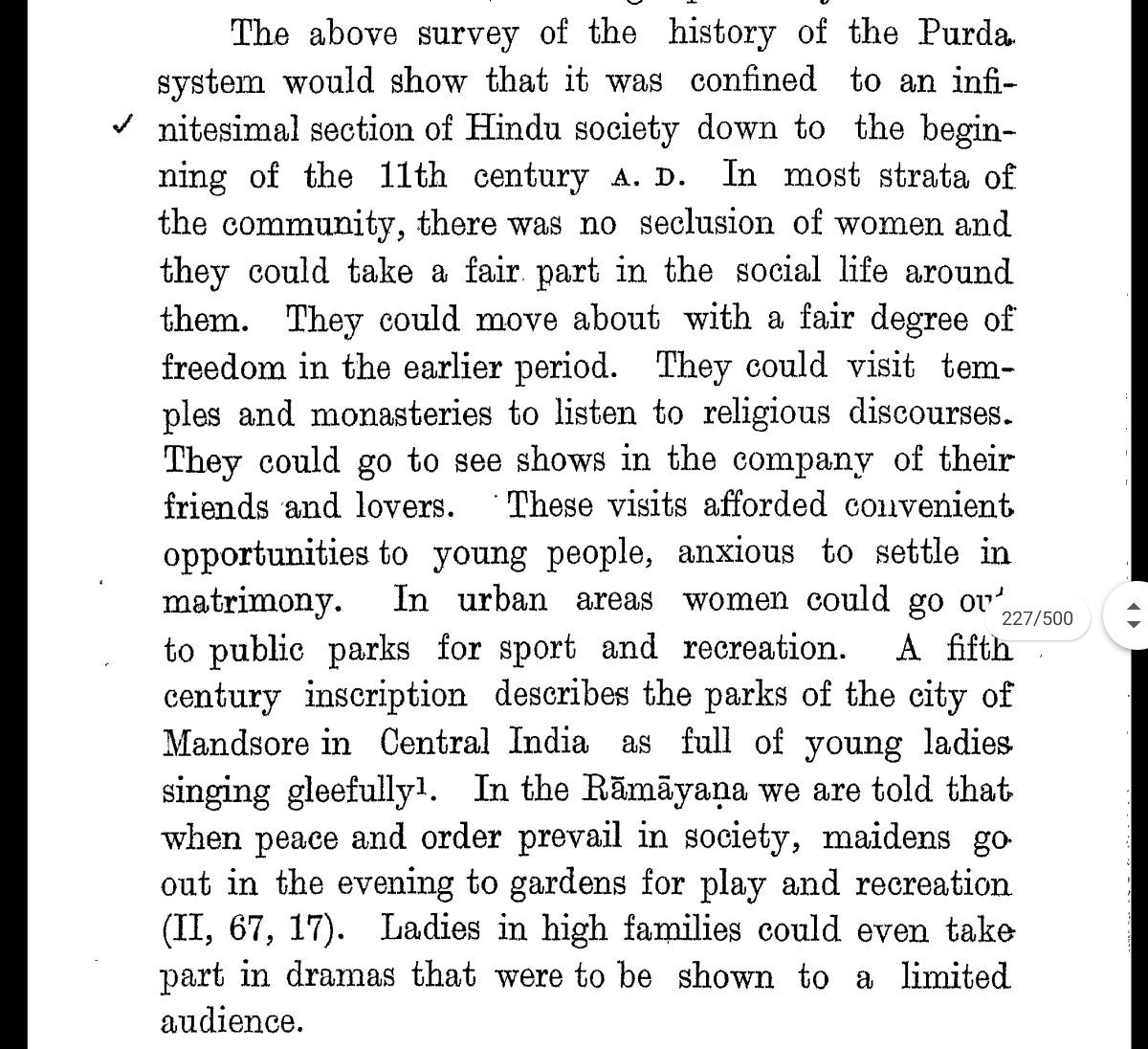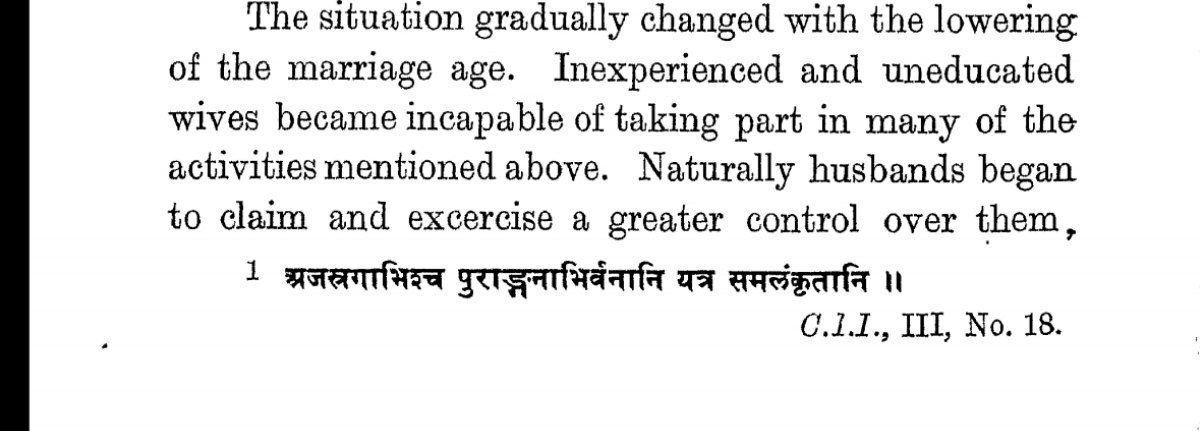Continued from yesterday's thread.Hindu society did not have anything akin to purdah although there were certain restrictions on the movement of women. They could go out with friends and relations but were expected to return when their business was done. https://twitter.com/Tanvangi17/status/1359753263164260352?s=19
They were allowed to go out but were to maintain a certain reserve in presence of strangers. They could interact with merchnats and doctors and do necessary business, but gain were expected to be cautious.
They could recieve male guests but the male members of the family would take over that task.
Generally there was a fair amount of freedom but they were required to exercise caution while dealing with strangers.
Generally there was a fair amount of freedom but they were required to exercise caution while dealing with strangers.
Arthashastra does mention a few jealous husbands here and there who didn't allow their women to go out without their permission but they were exceptions rather than the norm.
Although, no purdah was enforced, women who found themselves without a proper gurdians would avoid stepping out. Like widows, or maidens without guardian or a woman whose husband has gone for a journey.
Kautilya had advocated that widows forced to work for their bread should have materials required to spin thread into cotton delivered to their home unless they chose to step out to get it.
Helpless women without a guardian used to use veils when in situation which required them to interact with strangers and would discard it once their guardians returned.
In pre-Islam!c India, veil or purdah was used only by a small percentage of people, especially royal families to increase the prestige of their women. Even this was met with objection from women (Example Gopā).
Even until the end of 11th century AD we find hardly any trace of Purdah in Hindu society.
Some jealous husbads did attempt to keep their wives secluded but they were rubuked. Ratnaprabha opined that, " the strictest seclusion of women is a folly produced by jealousy.
Some jealous husbads did attempt to keep their wives secluded but they were rubuked. Ratnaprabha opined that, " the strictest seclusion of women is a folly produced by jealousy.
There was no trace of Purdah being popularly observed in Hindu society. No need for the daughter in law to veil her face in presence of family elder. Although it was expected that she show respect by bowing at their feet.
Widespread adoption of purdah system in Hindu society came with the advent of the Musl!m rule in India. It was accepted by the aristocractic families as an imitation of the conquerors.
Northern India saw this practice followed widely because the Musl!m rule and culture was in ascendancy for long time there. Deccan had very little Islam!c influence and hence this system did not take root there.
There were many other reasons for this system to take root. Women of 12th Century were illiterate and inexperienced and hence were not able to fight back like the women of the previous centuries did.
Also, the times were unsettled. Hindu life and honour did not count for much in the eyes of the Musl!m conquerors. Purdah offered additional protection to beautiful women from covetous eyes of the soldiery.
The Hindus of Bengal accepted purdah in around 15th and 16th centuries. It became a common practice in ruling families of Rajputana and was regarded as a sign of prestige and high breeding.
Earlier women were free to roam and attend shows, visit gardens with their lovers. They would participate in various activities and games. With the advent of Musl!m rule, there were constant wars. The need for male child increased.
Marriage age was lowered for women. With that, the love unions came to an end.
Illiterate women were ill-equipped to fight for their rights and assert themselves. Some jealous and narrow-minded people would not allow women to mix freely with other people.
Illiterate women were ill-equipped to fight for their rights and assert themselves. Some jealous and narrow-minded people would not allow women to mix freely with other people.
This created favourable atmosphere for the notion that women have to lead a secluded life. All in all, purdah was not popularly prevalent in Hindu society before the Musl!m rule.
None of our scriptures advocate seclusion for women. Purdah or ghoongat or face covering was not a part of Hindu culture. It became popular only after the Musl!ms became the rulers.

 Read on Twitter
Read on Twitter